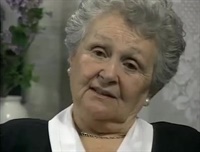EP95 Panel 01 - Gender Issues - James Hillman, PhD; Peggy Papp, ACSW; Miriam Polster, PhD; Olga Silverstein, MSW
- Average Rating:
- Not yet rated
- Topic Areas:
- Topical Panels | Gender | Psychotherapy | Identity
- Categories:
- Evolution of Psychotherapy | Evolution of Psychotherapy 1995 | Pioneers in Couples and Family Therapy
- Faculty:
- James Hillman, PhD | Peggy Papp, ACSW | Miriam Polster | Olga Silverstein, MSW
- Duration:
- 1:03:21
- Format:
- Audio Only
- Original Program Date:
- Dec 15, 1995
- License:
- Never Expires.
Description
Description: A dynamic panel discussion on the evolving role of gender in psychotherapy, addressing how societal expectations, cultural pressures, and social justice issues shape therapeutic practice. Speakers emphasize the often-overlooked impact of gender dynamics and urge therapists to acknowledge and integrate these considerations into their work.
Moderated by William Matthews, Jr, PhD.
Educational Objectives:
- To compare and contrast clinical and philosophical perspectives of experts.
*Sessions may be edited for content and to preserve confidentiality*
Credits
Handouts
| Timestamped Transcript (797.4 KB) | 18 Pages | Available after Purchase |
| Ericksonian Learning Snapshot (246.1 KB) | 2 Pages | Available after Purchase |
Faculty

James Hillman, PhD Related Seminars and Products
James Hillman, PhD, who received his Ph.D. degree from the Univeristy of Zurich, has served as honorary secretary of the International Association for Analytical Psychology and for 10 years was Director of Studies at the C.G. Jung Institute in Zurich. He has written 12 books and was nomiated for a Pulitzer prize.

Peggy Papp, ACSW Related Seminars and Products
PEGGY PAPP, A.C.S.W., is a therapist in private practice and Co-Director of the Brief Therapy Project at the Ackerman Institute for Family Therapy in New York City. She is recipient of the lifetime achievement award from the American Family Therapy Association and the award for distinguished contribution to Marital Family Therapy from the American Association for Marital and Family Therapy. Her latest book is Couples On the Fault Line.

Miriam Polster Related Seminars and Products
Miriam Polster, Ph.D, is co-director of the Gestalt Training Center in San Diego, and Assistant Clinical Professor at the Department of Psychiatry, School of Medicine, University of California, San Diego. Along with her husband, Erving Polster, she is co-author of a book on Gestalt therapy. She received her Ph.D. in Clinical Psychology from Case Western Reserve University in 1967.

Olga Silverstein, MSW Related Seminars and Products
Olga Silverstein was a renowned therapist and teacher. She specialized in family therapy and wrote several works on the subject of parenting, including The Courage to Raise Good Men. The daughter of Hungarian immigrants, she came to the United States at age seven, married young, and remained home rearing her three children until she was forty. Over the next seven years, she secured a high school diploma, a bachelor’s degree, and then a master of social work degree. In the mid-1970s she was co-founder with Peggy Papp of the Brief Therapy Project at the Ackerman Institute.
During the decade of the 1970s she and Papp joined Betty Carter and Marianne Walters to launch The Women’s Project in Family Therapy. They focused on examining the sexist concerns and theories that dominated their clinical practice, and soon began to offer workshops in the United States and abroad on women’s relationships in families. The pioneering and classic work, The Invisible Web: Gender Patterns in Family Relationships, was written by the four colleagues from this experience.


